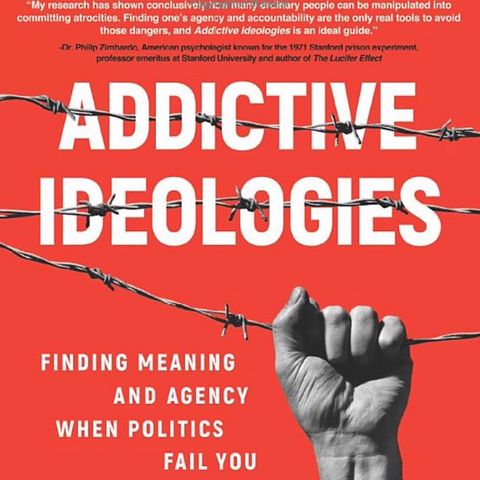Dr. Emily Bashah-Antisemitism and Addictive Ideologies

Download and listen anywhere
Download your favorite episodes and enjoy them, wherever you are! Sign up or log in now to access offline listening.
Dr. Emily Bashah-Antisemitism and Addictive Ideologies
This is an automatically generated transcript. Please note that complete accuracy is not guaranteed.
Description
With violent extremism on the rise in the U.S. and around the world, many of us are tempted to simply write off extremists as beyond help. But according to licensed...
show moreBut according to licensed clinical psychologist and extremism expert Dr. Emily Bashah, the lack of understanding around what causes extremism is simply adding fuel to the fire. She is our guest for the second time on the Lean to the Left and Justice Counts podcasts.
Dr. Bashah was awarded the Society for the Psychological Study of Social Issues Policy Fellowship and served within the American Psychological Association’s Public Interest Government Relations Office in Washington, D.C. She is co-author of the highly-praised book Addictive Ideologies, which we discussed in some detail in our initial episodes, which are still available on both the Lean to the Left and Justice Counts podcasts.
She frequently serves as an expert witness in civil and criminal court sand has worked on high-profile cases covering issues of domestic terrorism and capital offenses.
Here are some questions we discussed with Dr Bashah:
Mark: Do you consider anti-Semitism an “addictive ideology?”
Bob: What can America do to combat anti=Semitism?
Mark: Do you consider recent pro-Palestinian protestors on college campuses anti-Semites in search of a cause, or is something else going on?
Bob: Any other country that experienced a terrorist attack by its next-door neighbor would be encouraged to stamp out terror, yet Israel is portrayed as the aggressor rather than the defender. What are your thoughts about that?
Mark: We should add Islamaphobia to this discussion. American Muslims are not Hamas nor even Hamas sympathizers. Yet they are subject to abuse as well. Your thoughts?
Bob: You say that more and more seemingly reasonable individuals are falling into the trap of violent extremism, and are lured in by compelling conspiracy theories and a feeling of control they have when they engage with extremist ideologies. Can you elaborate?
Mark: You’ve said that by not working to understand extremists, we are actually encouraging extremism to continue. Please explain.
Bob: What are some common misconceptions about violent extremists?
Mark: What do you believe are the factors that contribute to a rise in violent extremism around the world?
Bob: You say that fragility feeds extremism. What do you mean? How do you teach anti-fragility?
Mark: What are some strategies for raising children in this atmosphere today? How is that crucial to fighting extremism?
Bob: Why is treating ideological extremism as an addiction important for stopping this violence?
Mark: Can you offer some tips to help someone who has fallen into the trap of addictive ideologies?
Bob: Remind our audience about your book, Addictive Ideologies. Can you give us the cliff notes version of the highlights? When can people find it?
Information
Copyright 2024 - Spreaker Inc. an iHeartMedia Company

Comments